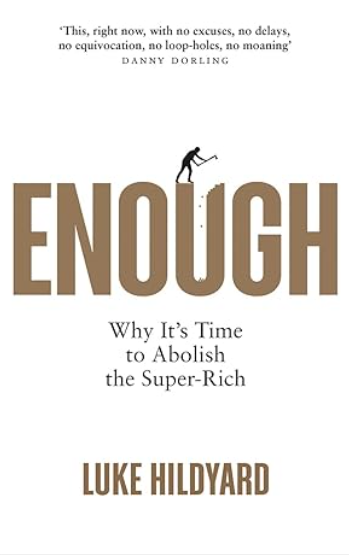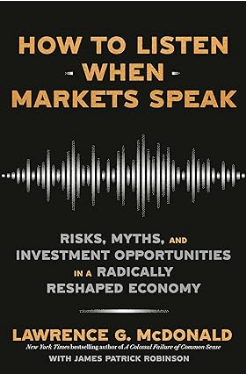
Book Bits: 30 March 2024

In the coming decade, we’ll witness sustained inflation, a series of sovereign and corporate debt crises, and a thundering of capital out of financial assets into hard assets… By purchasing books through this site, you provide support for The Capital Spectator’s free content… If you chose t…

● Enough: Why It’s Time to Abolish the Super-Rich
Luke Hildyard
Summary via publisher (Pluto Press)
The story is all too familiar. The global economy generates immense fortunes for a super-rich elite. Yet at the same time pay stagnates for ordinary workers, food banks proliferate and public services collapse around us. In Enough, Luke Hildyard argues that far from being the hard-working and productive entrepreneurs that they claim to be, the super-rich are an extractive, parasitic force sucking up a vastly disproportionate share of society’s resources – making the rest of us all poorer as a result.
 ● The Little Book of Valuation: How to Value a Company, Pick a Stock, and Profit (Updated Edition)
● The Little Book of Valuation: How to Value a Company, Pick a Stock, and Profit (Updated Edition)
Aswath Damodaran
Summary via publisher (Wiley)
In The Little Book of Valuation: How to Value a Company, Pick a Stock, and Profit, professor and economist Aswath Damodaran guides readers through the fundamentals and step-by-step process of picking winning companies to invest in. In the book, you’ll learn how to make your own accurate valuation assessments, avoiding common pitfalls and mistakes along the way. From widespread misunderstandings to undeniable truths in valuation, the author covers exactly where to turn your attention to when assessing a company’s value based on a myriad of factors, with stories and real examples included throughout to prepare you for any modern investing challenge you may find yourself facing.
 ● How to Listen When Markets Speak: Risks, Myths, and Investment Opportunities in a Radically Reshaped Economy
● How to Listen When Markets Speak: Risks, Myths, and Investment Opportunities in a Radically Reshaped Economy
Lawrence G. McDonald with James Patrick Robinson
Summary via publisher (Crown Currency/Penguin Random House)
From Wall Street to the White House, the fantasy of an eventual “return to normal” is still alive and well, nurtured by dangerously outdated theories. But the economic world as we know it—and the rules that govern it—are over. In the coming decade, we’ll witness sustained inflation, a series of sovereign and corporate debt crises, and a thundering of capital out of financial assets into hard assets. Few are prepared. In How to Listen When Markets Speak, McDonald unveils his unique predictive models, connecting surprising dots between past, present, and future and outlining actionable trading ideas for staying a beat ahead of the markets.
 ● How Nations Escape Poverty: Vietnam, Poland, and the Origins of Prosperity
● How Nations Escape Poverty: Vietnam, Poland, and the Origins of Prosperity
Rainer Zitelmann
Review via IEA
In economics, we often pick out countries or regions that consistently outperform their neighbours, or some other plausible comparison group, in some important respect, and we then ask what it is that they do differently.
If you chose that conventional approach, it is unlikely that you would develop a strong interest in either Poland or Vietnam. In terms of current economic indicators, neither economy is particularly outstanding.
Yet if we look at relative changes over time, we get a very different picture. Over the past three decades or so, Poland and Vietnam have been among the world’s growth champions, albeit from a low base. Not coincidentally, they have also been among the world’s most ambitious liberalisers, again, albeit from a low base. This is the subject of Dr Rainer Zitelmann’s new book How Nations Escape Poverty: Vietnam, Poland, and the Origins of Prosperity.
Please note that the links to books above are affiliate links with Amazon.com and James Picerno (a.k.a. The Capital Spectator) earns money if you buy one of the titles listed. Also note that you will not pay extra for a book even though it generates revenue for The Capital Spectator. By purchasing books through this site, you provide support for The Capital Spectator’s free content. Thank you!
Author: James Picerno
